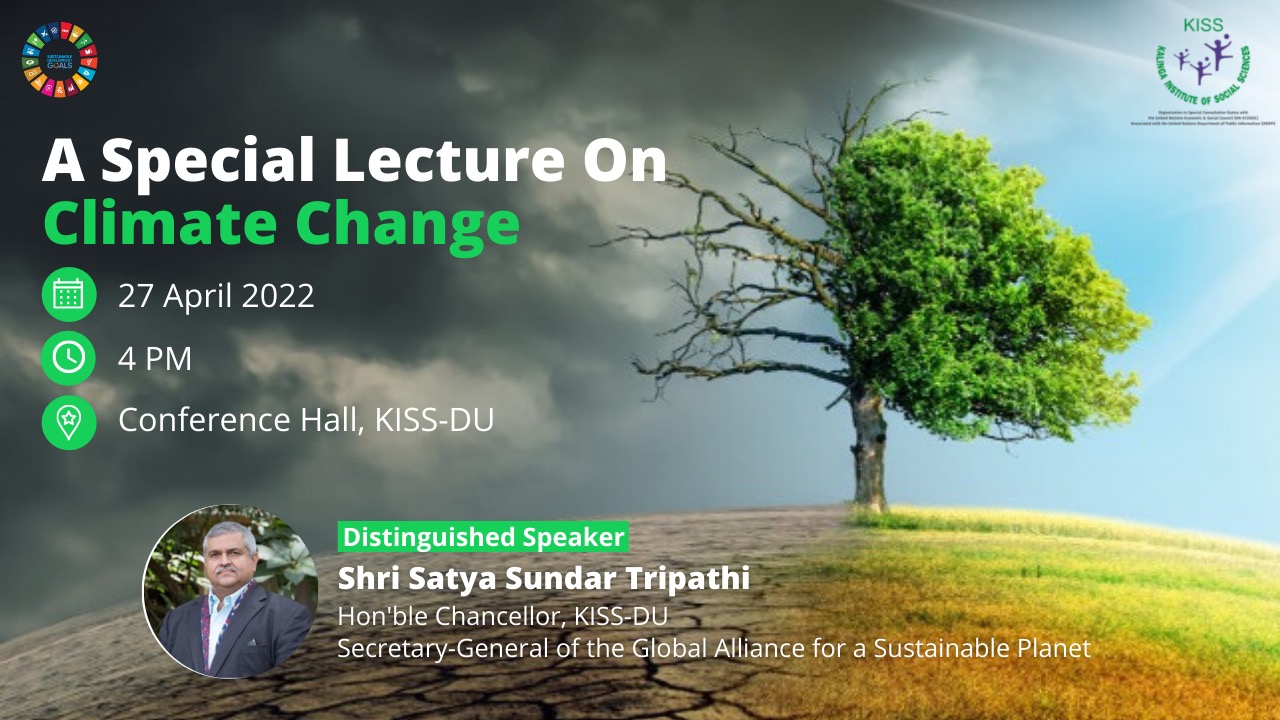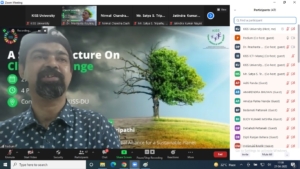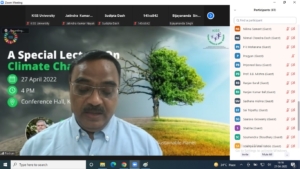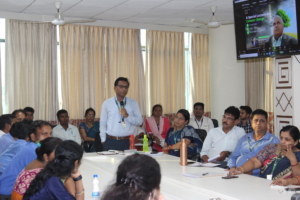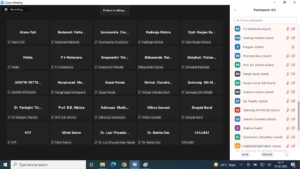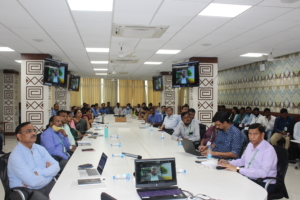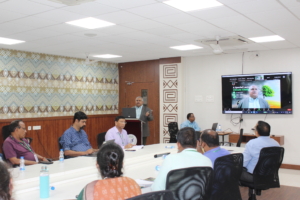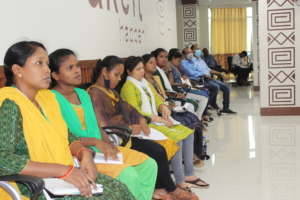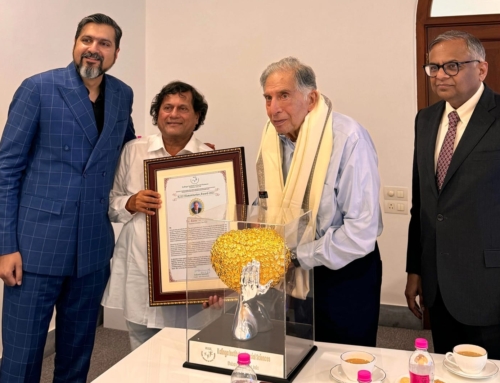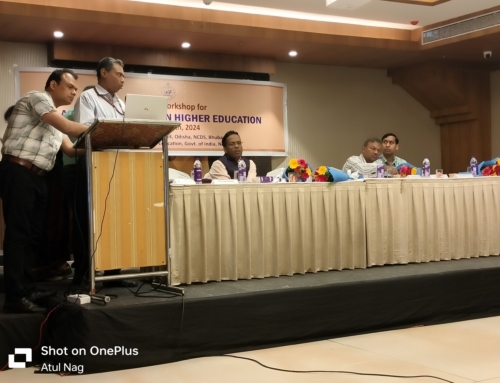Mr. Satya Sundar Tripathi, Hon’ble Chancellor, KISS-DU, who is on a visit to the institute, delivered a special lecture to the staff, students and research scholars on the impending perils of climate change on 27th April 2022. The Professors Emeriti of KISS-DU also attended the program, which was hosted in a hybrid mode.
Mr. Tripathy, who is currently the Secretary-General for the Global Alliance for a Sustainable Planet and earlier served as an Assistant Secretary-General and Head of the New York Office for the UN Environment Programme, called for an immediate reorientation in the popular approach toward global climate change, in view of the clear and present danger it poses to the well-being of the planet as a whole.
He began by reminding the staff at KISS that they ought to be well informed about the growing threats to the forests all over the world, especially since they work with children from the indigenous communities who themselves often rely on the forests for survival. They also are the most steadfast defenders of forests and forest-based ecosystems. Mr. Tripathi later observed that forests everywhere were being reduced by mindless greed for profit, except only in areas where indigenous communities have successfully mounted resistance.
He outlined the basic scientific theories behind climate change, though he personally preferred the name climate disaster or catastrophe since the idea of change often conveys a gradual shift and rarely appears alarming or provokes immediate responsible action. Production and consumption of plastics on an unprecedented scale have over the past three decades been raising the heat of the atmosphere. Ice has been melting to such an extent that it is projected that the mean sea level will rise by twenty feet in the next twenty years. Several small islands are destined to drown underwater, and the rest of the world is set to suffer from regular natural disasters such as forest fires and floods, causing loss of life and property on an unprecedented scale. He called upon the staff to immediately start conversations with the students on climate change, and include sustainability and climate change within their regular lessons to the extent possible. Even if the rich, countries, or people, did not pay sufficient attention to the cause, everyone has to come forward in their modest ways, since the problem concerns us all. In that context, Mr. Tripathi elaborated on the politics of climate change, or the ways in which the conflicting interests of various stakeholders often impede the accomplishment of carbon footprint reduction targets.
He also referred to successful experiments which have lately managed to reverse deforestation, such as Miyawaki forests and new initiatives by many farmers in Andhra Pradesh to give up the use of chemical fertilizers. Mr. Tripathi’s presentation was backed by statistics, examples and a comparative perspective. He said, for instance, that the quantity of plastic everyone is forced to consume every week is enough to make two credit cards, or that use of toxic chemicals in fertilizers has caused cancer to so many in Punjab that an entire express train from Bhatinda to Ajmer with hundreds of cancer patients is colloquially called Cancer Express. He concluded with a call to the teachers to include climate equity and justice within their mainstream pedagogy, the way social or economic justice has long been made part of the popular conversation and academic research and teaching.
Earlier, Dr. Prashanta Kumar Routray, Registrar, KISS-DU highlighted various accomplishments of the speaker and expressed his concern at the alarmingly rising temperature of Bhubaneswar over the last ten years, setting the stage for the lecture. The lecture was followed by a round of questions and answers. Professors and several other senior members of the staff asked about the cultural, economic, scientific and policy dimensions of climate change. Dr. Anirban Bandhopadhyay Associate Professor offered a vote of thanks.

